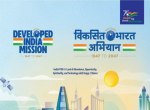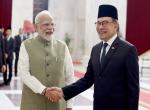Because India is wedded to the principle of social, economic and political justice and equality of status and of opportunity, it is the fundamental duty of government to ensure this for every citizen of India. That is what the Preamble to the Constitution states. Article 38 requires the State to secure a just social order for the promotion of the welfare of people, minimise inequalities in income and eliminate inequalities in status, facilities and opportunities, not only amongst individuals but also amongst groups of people residing in different areas or engaged in different vocations. Article 39 suggests in greater detail how this can be achieved. Contained in Article 38 is the mandate to narrow down or eliminate caste based or class based inequalities, to give every profession not only dignity but also equality of status and to remove regional differences arising on account of geography, topography, remoteness, or any other factors which have kept the region backward. From this flows the special consideration given in the report of the quinquennial Finance Commission to backward, remote and underdeveloped areas, together with a special status given to backward people.
All this is aimed at promoting the equality to which the Preamble refers. Read in this context, this is a powerful message of the Constitution to those who govern us because contained in the words of Articles 38 and 39 is the entire blueprint of the Welfare State. Unfortunately Articles 38 and 39 are more or less dismissed because they form a part of the Directive Principles of State Policy which many of us consider to be advisory rather than mandatory. This is unfortunate. It is almost as if the Ten Commandments were to be treated as a mere sermon rather than as the very core of the Christian faith.
Article 14 of the Constitution confers the Fundamental Right of Equality before law on every person within the territory of India. If viewed constructively, this right extends even to those persons living in India who are not citizens of this country. This, incidentally, is the true hallmark of a country governed by the rule of law, which does not discriminate between people on account of religion, race, caste, sex, or place of birth and, in the context of Article 14, even nationality. Article 15 expressly prohibits any form of discrimination. However, Article 16 does state that if there are any backward class of citizens who are not adequately represented in the services under the State, then the State may make special reservations for appointments or posts in order to correct the imbalance. The operative words are “backward class of citizens” and not “backward castes”. This distinction is important as will be discussed later in this paper.
Part XVI of the Constitution goes further and provides for special provisions relating to certain classes. The heading of this Part is slightly misleading in that apart from class-wise reservation it provides for both ethnicity based reservation and for caste based reservation. Articles 330 and 332 provide for reservation of seats for scheduled castes and scheduled tribes in the House of the People of Parliament and Legislative Assemblies of States. Article 331 permits reservation for Anglo Indians in the House of the People and Article 333 provides for similar reservation in the Legislative Assemblies. Under Article 334 such reservations were for a period of fifty years from the commencement of the Constitution, which means that the reservation should have ceased in the year 2000. Unfortunately from time to time the period of special representation has been extended by constitutional amendments and now it appears as if they have become more or less a permanent part of the Constitution. This is also true of Article 335 which states, “The claims of the members of the scheduled castes and scheduled tribes shall be taken into consideration, consistently with the maintenance of efficiency of administration, in the making of appointments to services and posts in connection with the affairs of the Union or of a State”. Unfortunately the words, “consistently with the maintenance of efficiency of administration” have been used only in the case of the Armed Forces which have steadfastly refused to accept any reservation in recruitment at any level. For the rest, not only have reservations become almost permanent, but their scope in fact has been widened from time to time as populism becomes the guiding factor in politics.
Reverting to Article 16, apart from reservation in government service for scheduled castes and scheduled tribes, there was no reservation for anyone else. Unfortunately the V.P. Singh government decided to disinter the Mandal Commission Report and activate its recommendations on reservation for what are called Other Backward Classes. Without going into the details of the Mandal Commission Report, the fact is that this Commission recognised more than three thousand sub-castes within the Hindu fold and classified a large number of them as backward classes. The Chambers Twenty-first Century Dictionary defines caste in the following words, “all the four hereditary social classes into which Hindu society is divided”. It is important to understand that caste is a concept exclusively within the domain of Hindu society and is defined by sage Manu in Manusmriti. To the best of my knowledge, no other religion has a concept of caste, not even those religions which have originated from the Sanatana Dharma, including Buddhism, Jainism and Sikhism. So far as castes are concerned, special consideration for them is contained in Part XVI of the Constitution and Article 16 does not apply to any matter which is dependent on caste. So far as class is concerned, the Chambers Twenty-first Century Dictionary gives the following definitions, “a category, kind or type, members of which share common characteristics; any of the social group into which people fall according to their job, wealth, etc.,; a system by which society is divided into such groups”. Class, therefore, has nothing to do with any religion and even within the same caste there can be different classes depending on one’s social status, wealth, profession, etc. For example, amongst the Brahmins of Gujarat the caste is divided between two classes, the Nagars who consider themselves to be the top of the heap, perform no priestly duties and who are served in the matter of religion and social customs by Nagar Brahmins, who stand one notch below. All the other Brahmin communities are grouped in a class below the Nagars, though both belong to the same caste. A class cannot have caste but within a caste there can be different classes.
The Mandal Commission tried to confuse between class and caste by lumping all the people of a particular sub-caste into a group to which it gave the title Other Backward Classes (OBC). Therefore, all Gujars, all Yadavs, all Ahirs, each of whom form a sub-caste within Hindu society, were lumped together as OBCs. Even within the Yadavs there are different classes, with some Yadavs being highly educated and highly placed, others following their traditional agricultural and pastoral professions and yet others being uneducated, backward and unable to find gainful employment. However, all Yadavs are now OBC and though government did try to introduce a creamy layer concept in the matter of extension of reservations, the fact remains that an entire sub-caste became transformed into a class and obtained backdoor entry under Article 16 in the matter of public employment. Here is a case of blatant misuse of the wordings of the Constitution to extend patronage to whole sub-castes of people in order to gain their votes. The situation is that as much as half of all posts in government service are reserved one way or the other on the basis of caste, caste masquerading as class, class per se and with an attempt being made to provide reservation on account of religion either directly as in Andhra Pradesh or in the guise of OBC reservation. Both of these are a blatant misuse of the Constitution, though none of our politicians dare acknowledge this publicly for fear of losing their seats. In all this the words of Article 335, “consistently with the maintenance of efficiency of administration”, are conveniently forgotten.
In the Madras Presidency, reservation became a part of government policy in 1923 and gradually the upper castes, especially the Brahmins, not only faced reduced opportunities for government employment but their children were denied education because of reservation of seats in educational institutions. Under the DMK Government things to came to such a pass that only about eight percent of the seats in institutions of higher learning in Tamil Nadu were available to the Brahmins. Because the community has always prided itself on knowledge and learning, the Brahmins decided that their generation would sacrifice itself so that their children could be educated and, therefore, large numbers of Tamil Brahmin children migrated to universities on all points of the compass in order to gain higher education. Similarly, Tamil Brahmins denied employment in Tamil Nadu moved to wherever jobs were available and, like the Malayalees, they formed the backbone of every government in this country. As for the youth, so many migrated to Silicon Valley in the United States that today the entire computer industry in that country would probably collapse if Tamil Brahmins were to withdraw. Without being judgemental or without empirically trying to assess the loss to Tamil Nadu on account of out migration of many of its brightest children, one can safely state that the gain of the Silicon Valley is at the cost of Tamil Nadu. This is one case where reservation has converted itself into positive discrimination against a particular caste and this has certainly not benefitted the State.
The argument for reservation is that social discrimination in India for over thousands of years has created such massive inequalities that if India is to emerge as a modern State it must take all necessary steps to reverse the inequalities and eliminate the longstanding discrimination. That is why we need to empower the scheduled castes, scheduled tribes and OBCs through a share of government service and, therefore, of power so that they can correct the imbalances of the past. I can understand the sentiment behind this argument and do realise that if I were of a caste subjected to discrimination and utter humiliation I would also be filled with a desire for revenge. But revenge is a very bad cure and can kill as surely as the disease itself. The law must take care of social discrimination and we must be ruthless in suppressing it in every form. Perhaps we have not totally succeeded in this behalf and that is utterly shameful. Part of this is because we have not fully understood the context in which Manu divided society into castes. The original division was profession-wise and there is nothing in Manusmriti which suggests that cross caste movement could not take place as one changed one’s profession. The stratification of Hindu society is a subsequent event and its main cause is the extreme form of Brahminical Hinduism into which India descended and against which Prince Siddhartha revolted, became Buddha the Enlightened One and gave us a new religion, Buddhism. That religion itself retreated after Adi Sankara reformed Hinduism, though the reforms were not carried far enough to eliminate the worst forms of caste discrimination. Even today Hindu society is mired in social prejudice and inequality and this must be corrected. The question is whether reservation is the correct way of doing it.
If the State were to consciously follow a policy of providing high grade education to the most backward, the most discriminated against, the most disadvantaged, inequalities based on caste or religion can be narrowed down and even completely eradicated. King Bhumibol Adyuladej of Thailand was able to persuade his government that it must invest in the best educational infrastructure in backward areas, the remote provinces, slums and depressed areas so that, through education, inequalities of status and opportunity could be removed. In one cycle of school education, the Thai Government has succeeded beyond its wildest dreams. The Navodaya Vidyalaya experiment of Rajiv Gandhi is a shining example of what can be achieved through education, though the scale is too small to have a major impact. However, flood the country with such schools then, regardless of caste, we can bring equality to all children and within a cycle of twelve years this would transform India. Empowerment through active affirmative action for equal opportunity is far more effective than the lazy man’s resort to reservations, because reservations neither help the community as a whole, nor raise the capabilities of the target community because what is being offered is a job on a platter, but not the training for the competence needed to acquire that job. Rather than promote merit in the target group, it has created a new class of ‘haves’, who get jobs through reservation and the ‘have nots’ who are left out because there is not sufficient availability of jobs.
Let us begin with political reservations. Rather than having reservation of seats through the Constitution can we not amend the Representation of Peoples Act or, if need be, the Constitution to make it mandatory for every political party to field a given proportion of its candidates from the categories for which reservation now exists? Leave it to the parties to select candidates from scheduled castes and scheduled tribes in adequate numbers. If the party wants to win a particular seat it will have to put up the best SC/ST candidate and whilst this would give representation to these categories, it would be done not because there is reservation but because there is an adequate number of candidates from these categories. Similarly, instead of reservation in jobs should we not, through an aggressive programme of education and training, not increase the competence level of SC/ST candidates so that they can compete on equal terms? Should we not remove from our polity the spectrum of reservation as a means of empowerment and replace it by genuine empowerment through education, training and increasing competence levels?
What we are doing today is to move into a regime in which reservation has become counterproductive and is now tantamount to a reverse discrimination, not only against the upper castes but also within the categories for which reservation is done because by offering easy employment it is destroying their desire for advancement through their own efforts. This is an issue on which we need to do some serious thinking because if reservation creates ennui, despondency or even a degree of fatalism amongst those for whom reservations are provided and also those who have to compete in the open market, the results can be disastrous. For reserved categories it can lead to a feeling that performance and merit are irrelevant because they will find employment through reservation and this would be a demotivating factor in achieving excellence. For those outside the reservation net, the restricted job market can lead many to take the view that no matter how good they are at their studies they will not be given a job, so why study! This is when reservations becomes reverse discrimination and, therefore, counterproductive. We are about to reach that unfortunate stage in our history.
Published Date: 21st October 2013, Image Source: http://www.odishaviews.com









Post new comment